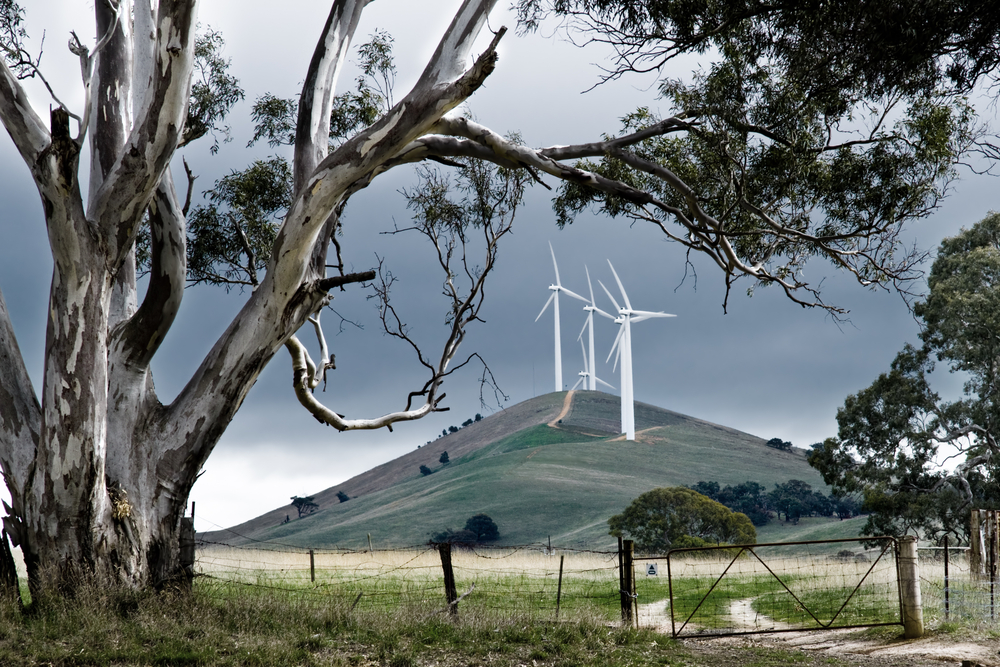Australia is making some progress to address the impacts of climate change, but greater urgency is needed.
Australia needs a greater sense of urgency in tackling greenhouse gas emissions, including in the health sector, a new climate change score card has found.
The MJA–Lancet Countdown on health and climate change also found good progress at both a government and community level.
The article, co-authored by Associate Professor Paul Beggs from Macquarie University, praised the Australian Government’s move to release the country’s first National Health and Climate Strategy and welcomed the Western Australian Government’s preparation of a Health Sector Adaptation Plan.
The Countdown, established in 2017, provides annual updates on progress tackling emissions, tracking 25 indicators across five broad areas.
The MJA–Lancet Countdown highlighted the health and economic costs of inaction of health and climate change, with one example being major flooding in eastern Australia in 2022 which directly caused the deaths of 23 people, displaced thousands of people, and cost $7.1 billion.
It also stated the urgency of the need to improve Australia’s mitigation and adaption responses.
“Australia’s energy system, and its health care sector, currently emit an unreasonable and unjust proportion of greenhouse gases into the atmosphere,” the article said.
“The urgency of substantial further enhancements in Australia’s mitigation and adaptation responses to the enormous health and climate change challenge cannot be overstated.”

Nonetheless, Australia is making some progress, with the government committed to reducing greenhouse gas emissions to 43% below 2005 levels by 2030. The number of electric vehicle sales also doubled between 2021 and 2022.
The amount of media coverage on health and climate change increased between 2021 and 2022, while the number of scientific publications on the topic increased by 75% over the same time period.
The Countdown is the work of 14 institutions, including 11 in Australia, in collaboration with University College London through a partnership between The Lancet and the MJA.
Aboriginal and Torres Strait Islander health and wellbeing
The MJA–Lancet Countdown also measured the climate change impacts on Aboriginal and Torres Strait Islander health and wellbeing.
“The destructive impact of colonisation continues to ripple through generations of Aboriginal and Torres Strait Islander communities,” it said.
“Forced separation from land and families and widescale exploitation and degradation of the environment has disrupted connection to Country and culture. However, important Knowledge systems about complex ecological systems and how to care for Country have survived.”
Indigenous communities have noticed reduced reliability of seasonal cues, with fruits flowering at different times and extended heat and other extreme conditions affecting quality and availability of bush resources, the article said.
“In other communities, encroaching seawater is washing over important cultural and burial sites and contaminating fresh water supplies,” the article said.
“Underpinning climate worries is a deep sense of fear, uncertainty and lack of control over caring for Country responsibilities that are manifesting in poor emotional and social wellbeing outcomes for communities.”
National Health and Climate Strategy
The Australian Government launched the country’s first National Health and Climate Strategy on 3 December 2023, establishing actions to build climate-resilient communities and create a more sustainable, net zero health system.
The four objectives of the strategy are health system resilience, health system decarbonisation, international collaboration, and incorporating health at a whole-of-government level.
Read the MJA–Lancet Countdown in the Medical Journal of Australia.
Subscribe to the free InSight+ weekly newsletter here. It is available to all readers, not just registered medical practitioners.

 more_vert
more_vert
Some few of us studied the hard, pure sciences at excellent universities before doing medicine.
As one of these, I am certain of a brace of truths.
Climate varies according to a variety of cycles in the sun and the planetary system and has done so since the cooling of the earth after the placement of the moon following the last catastrophic collision with another body.
It is well established that carbon dioxide has varied enormously throughout the life of the planet and it is certain that the wide variation followed the rise and fall of oceanic temperature, IT DID NOT LEAD.
So net zero is absurd and extremely damaging to civilisation.
Using educated knowledge, food and fibre production and transportation for 8 billion fellow human beings totally depends on fossil fuel and so does the production of the latest “alternative” sources of energy – huge windmills and solar panels.
The sane solution is to go nuclear in the first and second world communities which are both politically stable and geophysically stable starting immediately.
Keep in mind, the practice of modern medicine and surgery is impossible; low intensity power in a net zero economy fails to enable iron, steel, aluminium production, not to mention all the complex manufacturing involved in anaesthetics, drugs, antibiotics, surgical instruments and IT hardware.
why is everyone so silly. The earth is finite, you cant keep increasing the population,
Promote a decrease in world population and attend to the other serious issues
This article seems blind to the big picture.